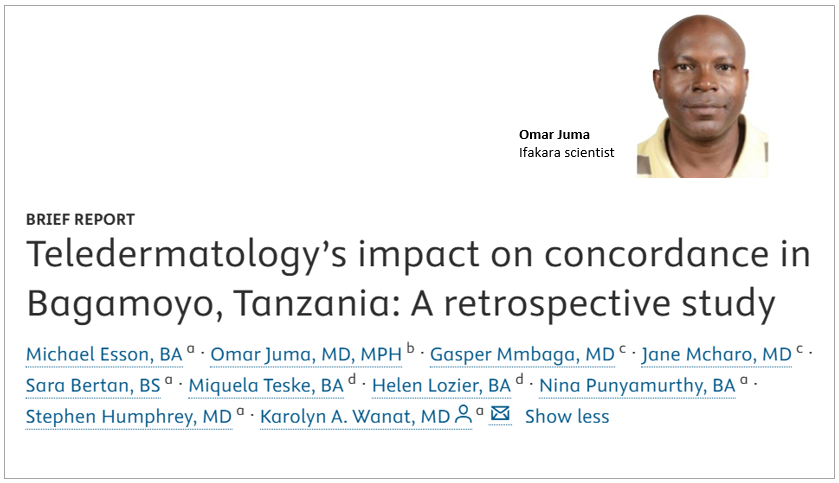
INNOVATION: Smartphones bring skin specialist support to rural Tanzania

In Bagamoyo, Tanzania, where access to skin specialists is scarce, local clinicians are using smartphones and the internet to consult with U.S.-based dermatologists. This approach, known as teledermatology, allows patients to receive diagnoses and treatment plans remotely, a promising solution for rural communities.
A study by researchers from the Ifakara Health Institute, Tanzania and the Medical College of Wisconsin, United States, published on the Journal of the American Academy of Dermatology, evaluated how well local clinicians' assessments matched those made by remote dermatologists. The goal was to assess how often both sides agreed on diagnoses and treatment decisions.
“We previously piloted the use of teledermatology, demonstrating its acceptability to patients. This study aimed to categorize skin diseases in Bagamoyo and to assess teledermatology’ s impact on diagnostic and management concordance,” the study authors note.
Agreements, disagreements
The study found high levels of agreement between doctors for common conditions like bacterial infections and eczema. In these cases, both local clinicians and remote specialists (U.S. dermatologists) often reached similar conclusions about skin conditions and treatment plans.
However, disagreements were more common with conditions such as fungal infections and autoimmune diseases, which can be harder to diagnose without specialist training or lab tests. These findings highlight where teledermatology may fall short and where additional support is needed.
Why this matter
As mobile technology continues to expand, telemedicine — including teledermatology — has the potential to improve patient care in areas with limited access to specialists. However, despite its benefits, researchers caution that it is not a complete solution. They emphasize the importance of continued education and clinical guidance for local providers, particularly when dealing with complex skin problems.
“Sub-Saharan Africa has a shortage of dermatologists, intensifying the burden of skin diseases. Bridging these gaps demands innovative solutions, with teledermatology emerging as a promising tool to provide access to specialized care in remote areas,” underscores the authors.
Ifakara scientist plays key role
The study included key contributions from Dr. Omary Juma of the Ifakara Health Institute, working alongside collaborators from both the US and Tanzania. It was co-led by Michael Esson and Karolyn Wanat of the Medical College of Wisconsin, with support from colleagues Sara Bertan, Nina Punyamurthy, and Stephen Humphrey.
Additional contributors were Gasper Mmbaga and Jane Mcharo from Bagamoyo District Hospital, and Miquela Teske and Helen Lozier from the University of Iowa Carver College of Medicine.
Read the publication here.
